Have you ever gone through a situation in which you felt mixed emotions when most people would expect you to have 100% positive feelings? Here's mine, as journaled on October 12.
Today, demolition began in my current kitchen, and in six weeks, I'll have a beautiful, custom kitchen, completely optimized for our small space and loaded with gleaming stainless steel appliances, a range hood, a gorgeous new sink and faucet I hand-selected, recessed and under-counter LED lighting, and all the storage we could ever dream of.
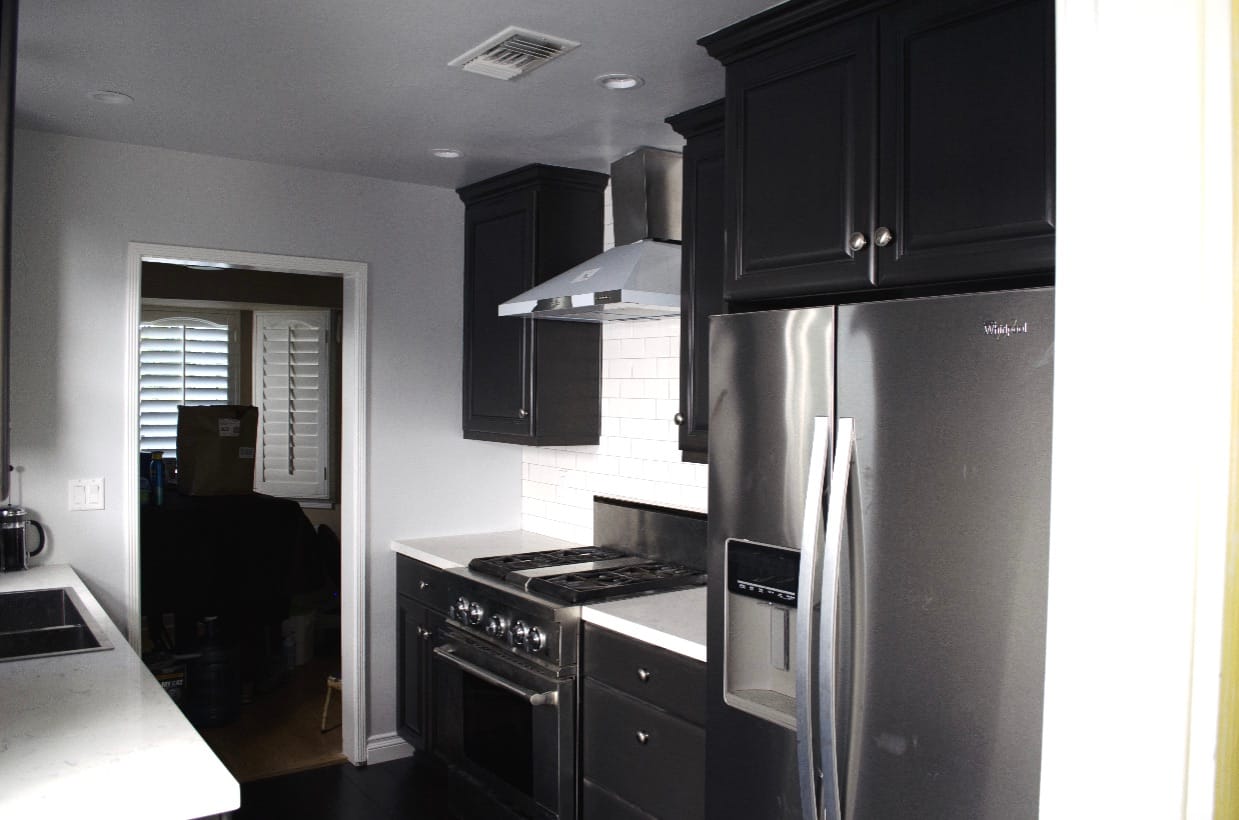
The old kitchen had bottom cabinets suited for a much bigger space, and no upper cabinets at all. The fridge was in an awkward spot, and didn't match the other appliances. There was no vent or hood, so any cooking smoke went straight into the house. Storage was scant, and definitely not optimized.
It's a much-needed renovation.
So why can't I stop crying?
A Kitchen, A Childhood
As far back as I can remember, we were always in this kitchen. All of us. Both my parents were phenomenal cooks and bakers, and taught themselves to prepare seemingly anything imaginable. We amassed a library of sauce-stained cookbooks with marginalia, an array of knives, and stacks of prep bowls, pizza pans and baking sheets.
Except for premade meals like cereal or oatmeal, we cooked 90 percent of our meals at home. Most of it -- everything from pasta to pizza dough, bread, dressings, sauces, marinades, sides, desserts -- was from scratch.
As I grew older, I learned that this choice was for financial reasons, but as a kid, I just thought everybody else cooked like this, too. Mom and Dad always said, "The best gift you can give someone you care about is a meal made with love. We love each other, and cooking together is one of the ways we show it."
Our dinners were served with the declaration, "Made with love." And at least two of us had a hand in making every one of them.
My earliest memories are in this kitchen. As soon as I was old enough to hold a spoon and stand on a stool, I stirred sauces so my dad could get out of the hot kitchen and throw back a couple cold beers. As I got older, my responsibilities grew, and by the time I came home for the holidays in college, I was finally "allowed" to cook meals solo, with my dad doing the final tasting and indicating his approval -- just like an executive chef.
After graduation, he started quizzing me on core dishes as I made them. OK, Brass... What's the ratio of soy sauce to mirin in our family teriyaki sauce? Good. Name all the ingredients in our hot potato salad.
In 2013, my dad and I cooked our favorite dishes together after my mom died of cancer. By nourishing each other's bodies, perhaps we could nourish each other's spirits, too.
Fourteen months later, my dad had a heart attack and died, leaving my childhood home filled with memories and things, but empty.
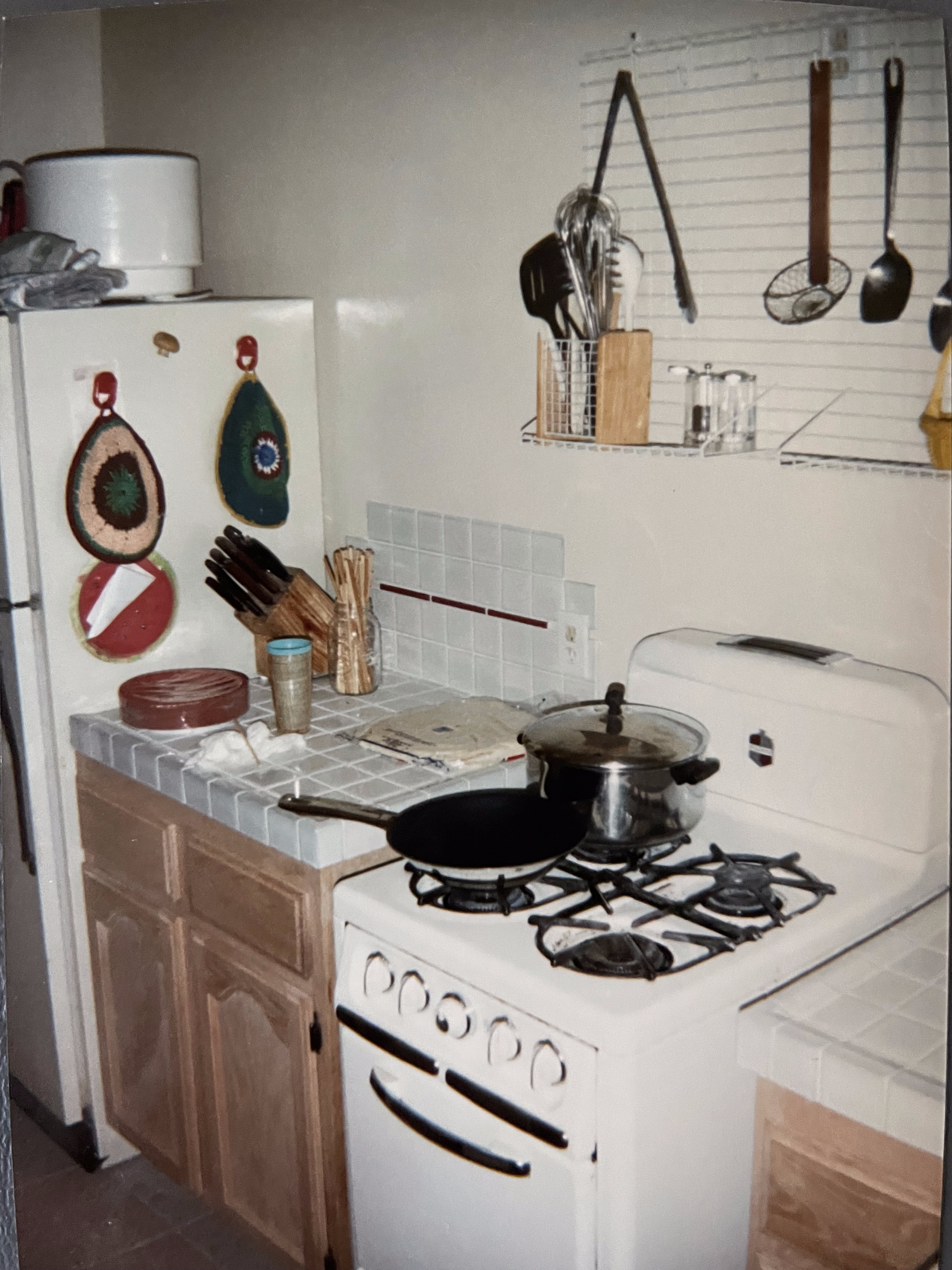
Emotional Baggage
I've previously written about how we chose to move from our apartment in San Diego into my childhood home, which my parents had owned since the 70s.
My mom had designed the bathroom renovation, and my dad led the design of the living room renovation. Their next project was always going to be the kitchen, but they died before initiating the project.
Most people move into empty homes. We moved into one with almost 40 years of my parents' memories. So our first 10 months here flew by.
In addition to obvious changes, like cleaning out closets and donating and selling items we can't use, we made lots of tiny upgrades. Mike built the officebar, we made minor and major aesthetic tweaks inside and out to give us a little more space... but the kitchen stuck out like a sore, outdated thumb.
We painted the walls and cabinets, added a pot rack, and rearranged all the cabinets. Still, the space felt so much smaller than it did when I was a kid. Mike and I constantly bumped into each other: it was like one of us was always exactly in the other person's way.
My parents bumped into each other, too, but they blamed it on their weight, rather than an unoptimized space. I wonder how many arguments an appropriately designed kitchen would have saved them.
And yet, despite the glaring opportunity to improve the most important space in our house, I couldn't find the incentive to find and interview contractors for months.
Every time I walked into the kitchen, memories flickered in front of me like holograms. Mom loading the dishwasher with her yellow rubber gloves. Dad covered in sweat, taking a swig of an ice-cold beer before wiping his brow. A little-kid-sized me, ducking to dart between them to grab ingredients from the pantry.
If I redesigned the kitchen, would these memories die too?
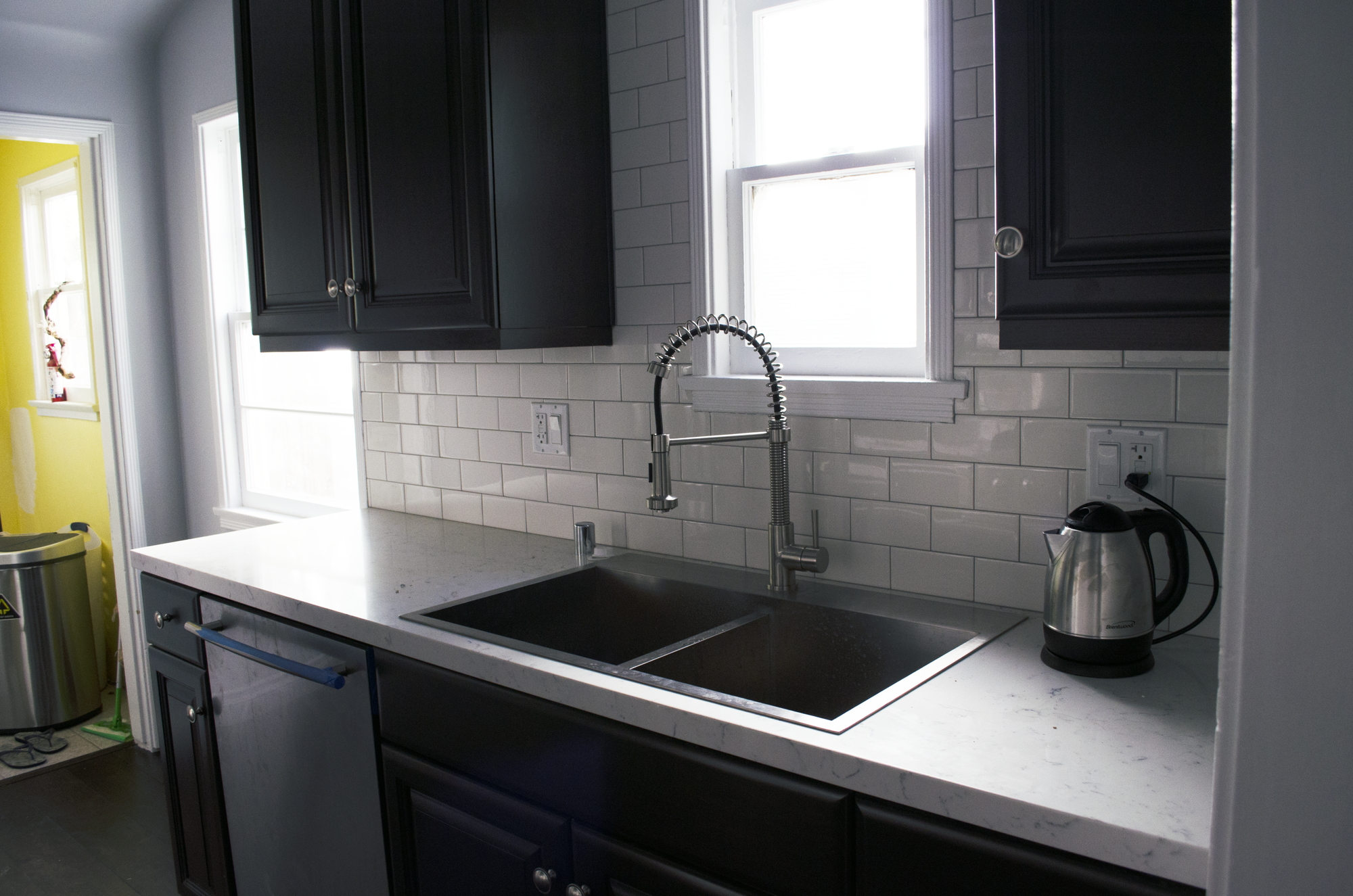
Jettison That Which Does Not Serve You
I have a personal policy that whenever I feel sad about my parents’ deaths or miss them and want to cry, I let it rip. I love and loved my parents so much that to intentionally prevent myself from truly feeling their loss would feel… wrong.
So I let myself cry, every time, and on this day. And by about mid-afternoon, I had a revelation. At every opportunity, I was making decisions my parents would have been proud of -- and, frankly, decisions that my parents wouldn’t have been able to make themselves.
In comparison, I had it easy: I just had my first 18-plus years in this kitchen, and a few years after college. But my parents lived their entire adult lives in this space, for most of their 44 years of marriage. Now, I can understand how crippling that history, that tenure, was for them.
Our home -- and yours, too -- holds so many memories in every square foot.
For me, when that demolition began in the kitchen, so many emotions resurfaced. But after the dust settled and tears dried, I thought something that’s crossed my mind many times over the last three years: This is my new normal.
Keeping the kitchen just as it was when I was a kid isn’t going to turn back the clock. It isn’t going to change the past. It just maintains the status quo.
And that’s one choice, for sure -- but back in January, I chose differently. We could have maintained our status quo in San Diego and sold the Los Angeles house.
But we didn’t.
Where everyone else saw sadness, grief and what once was, we saw opportunity.
We saw the house like an unfinished script. It already had beautiful stories and bulleted notes for how the narrative would develop, but it just needed a creative spirit and fresh energy to progress.
Mom’s renovation chapter is in the bathroom. Dad’s renovation chapter is in the living room. And with the kitchen and new floors, Mike and I will have the start of our renovation chapter.
As emotionally difficult as demo day was, I know that the end will be worth every penny, tear and minute. This home will become the perfect space for us, our current lifestyle, and how we hope to live in the future. I know it, because I’ve seen glimpses of it with the officebar, the backyard, and Mike’s garage.
I often use the mantra “destroy to create” in coaching, in the context of tearing apart core habits, routines and processes, optimizing them, and creating a new, streamlined system. The idea is to free yourself of anything that doesn’t bring you results.
The demo team had a clear “destroy to create” mission. And by authorizing, funding and following through on the renovation plans, so do I.
But there’s more to this than just physical changes. By destroying the most familiar, memory-filled room in this home, I created the possibility of a new context and identity for it. A new beginning.
This is my childhood home, and always will be. Cabinet configurations and countertops won’t change that.
But for now and the future, it must serve Adult Me and Mike. And that requires some fresh energy and new ideas.
Soon, very soon, we’ll be able to use and enjoy our new custom kitchen -- and the promise of that wonderful near-future vision is what carries me through these noisy, microwave-dinner days.


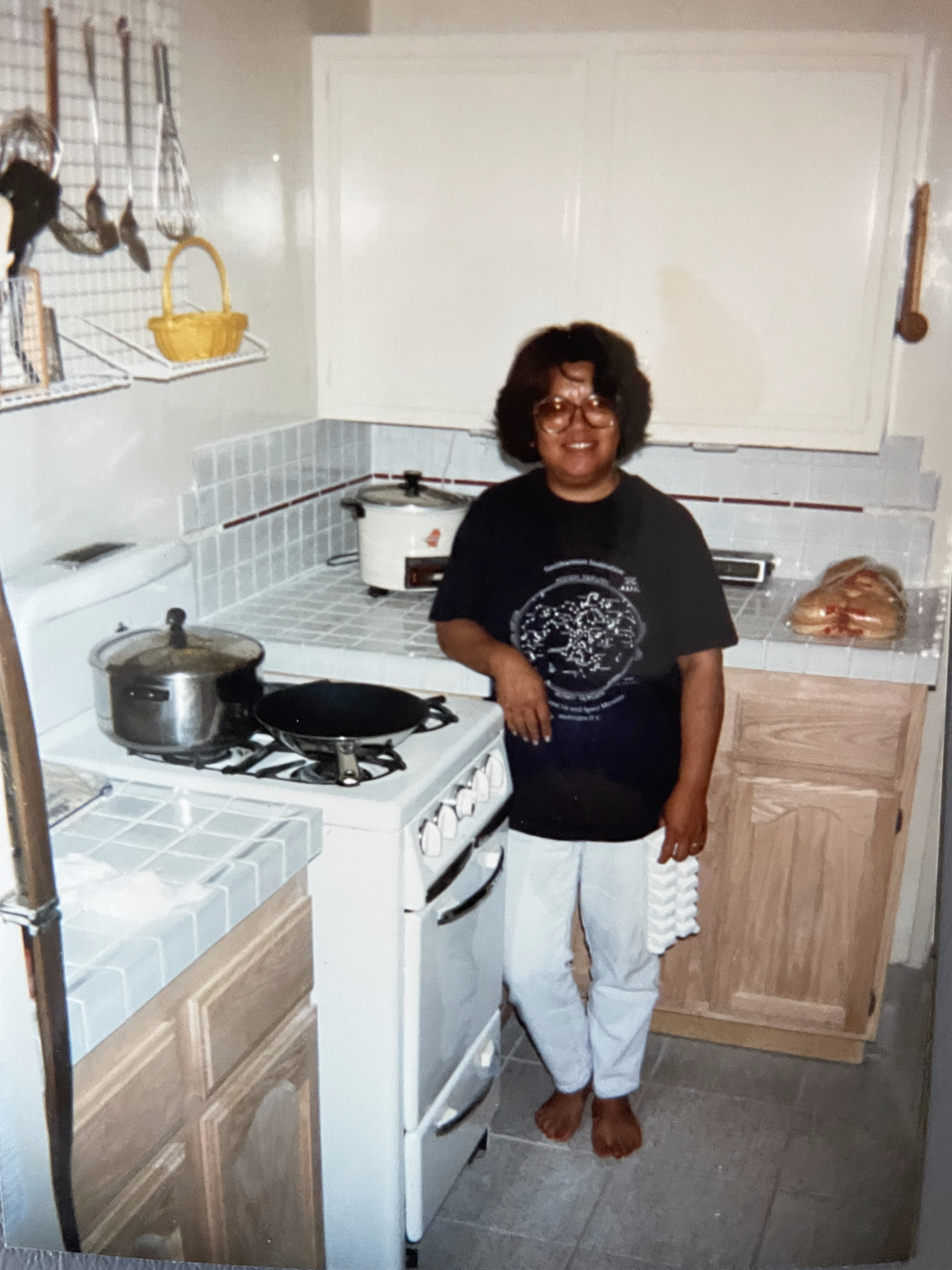
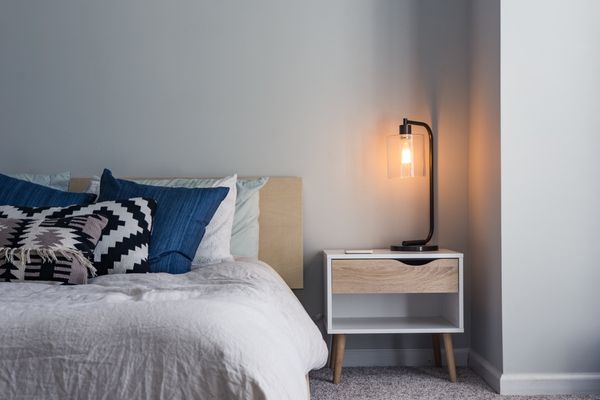
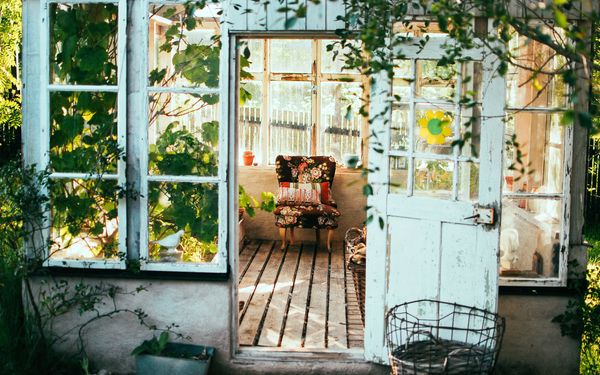



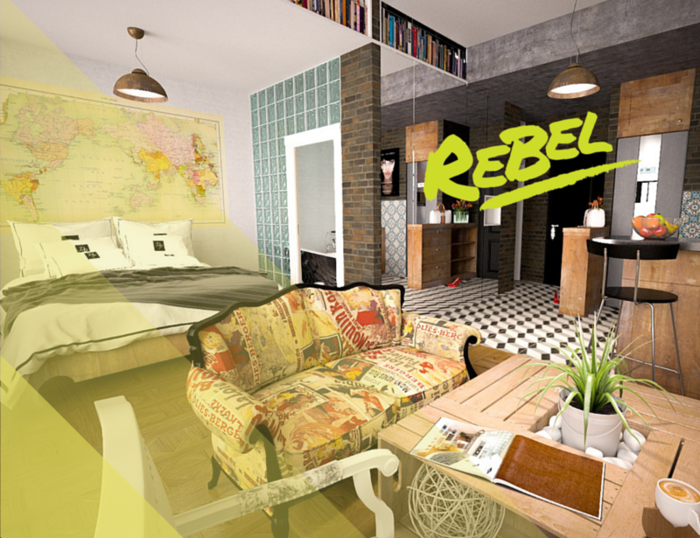
Member discussion